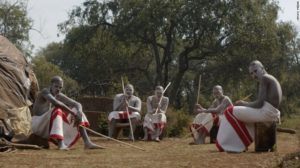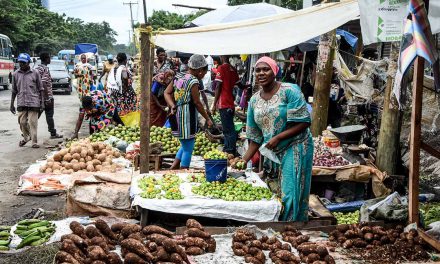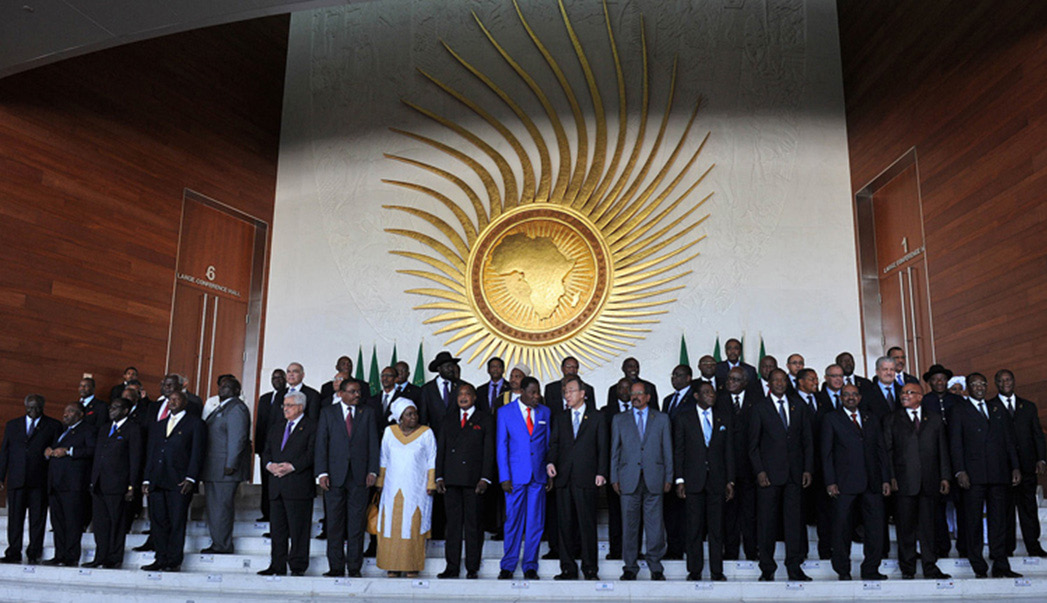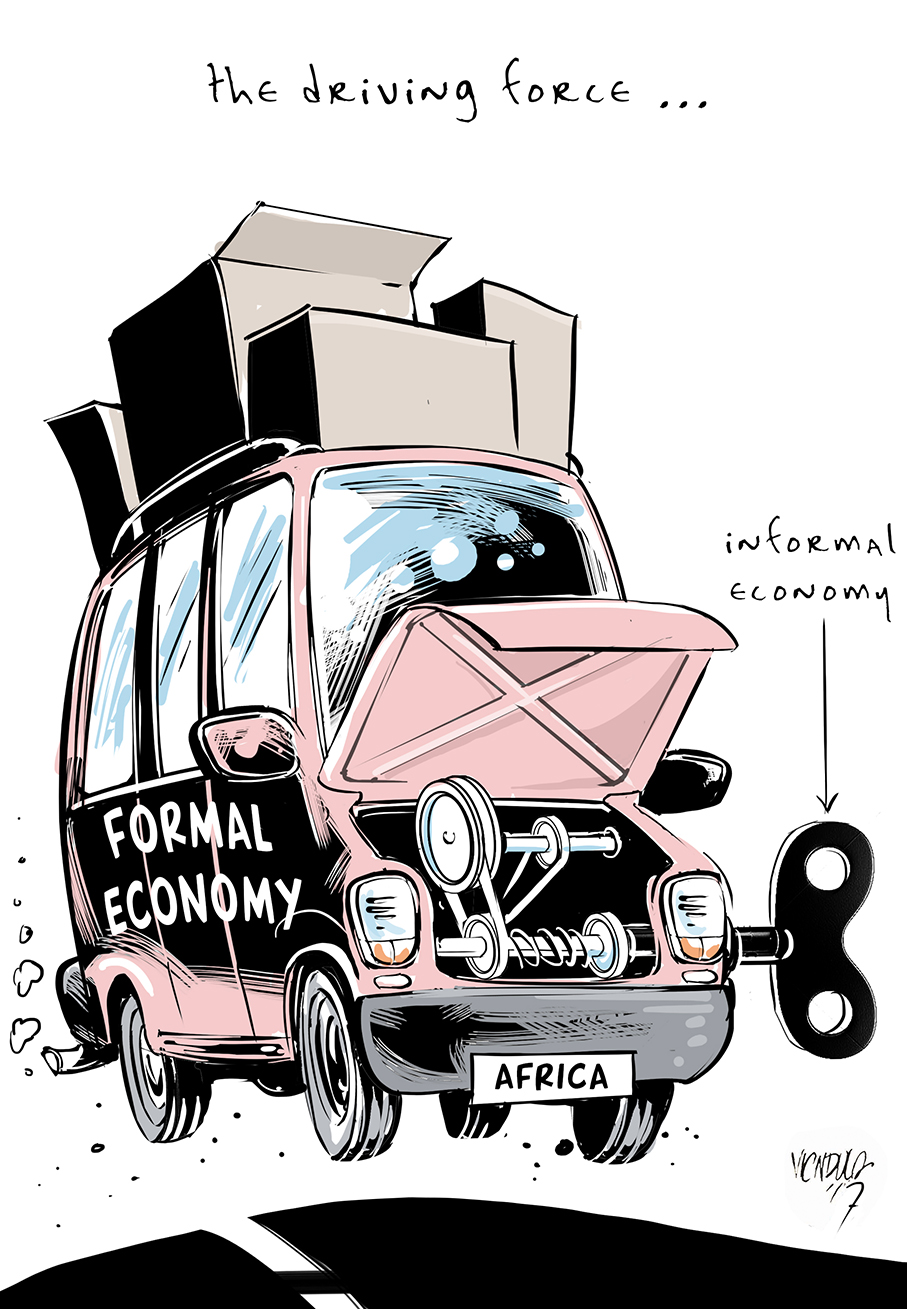If African filmmakers believed more in their own stories, and had more funding, cinema on the continent could be on the brink of a golden age
Africa’s film industry is set to play a key role in creating new jobs in Africa as the continent prepares for massive demographic waves. This is according to a recently released report, Framing the Shot – Key Trends in African Film 2018 by Dayo Ogunyemi’s Lagos-based production house 234 Media, in partnership with the Goethe-Institut and with support from the German Federal Foreign Office. Within a generation, the report says, Africa will have the world’s largest workforce, while it will have more than a third of the world’s population by 2100.
According to the analysis, the two largest film industries in Africa currently contribute a total of $1 billion to the continent’s annual GDP. Nigerian film generates close to one million jobs, while the South African industry generates over 21,600. Box-office revenues reached $12 million for Nigeria last year, with a third of the total going to local films. South Africa boasted a significantly larger revenue at $89.6 million for the same period, but with only 3.8% going to South African productions.

“Exhibition infrastructure, as evidenced by cinema screen penetration ratios, is low in every country in Africa,” write the authors of the report. “This places a ceiling on what film releases can earn in domestic cinemas… If Africa were to follow China’s example and invest extensively in cinema infrastructure… annual box-office revenues across Africa could rise to $1.5 – $2 billion; with Nigeria and South Africa accounting for as much as $500 million.”
But investments are still falling short, and African filmmakers face numerous challenges in financing and distributing their productions. For producer Steven Markovitz – whose film A Kasha was selected for the 2018 Venice International Film Festival (August 28 – September 9), one of the main challenges for African producers is getting funders from established industries such as South Africa’s to co-produce films from other countries. “It’s so important that we support each other on the continent,” he commented.
For Markovitz, the film industry has greatly evolved in Africa over the past few years: “We are making better films and there is more interest in African films internationally. We need to be making more films!” The producer also believes support for great African projects is not always at hand. “There needs to be more support for African films,” he told Africa in Fact. “There is a new generation of filmmakers who are starting to get noticed. With the right support, I am feeling optimistic.”
A Kasha is a brave example of a film made in spite of countless obstacles. A truly independent production, it was shot in a war zone, in Sudan. Funding – from the Doha Film Institute, then Arab Fund For Arts and Culture, and the Berlinale’s World Cinema Fund – was obtained just before the shoot began. “(Director) Hajooj Kuka’s tenacity against many very difficult obstacles is what pulled the film over the line,” said Markovitz. “The film was made with very supportive partners and we now hope, after Venice, it will travel far and wide.”
In certain African countries with smaller film industries, where production receives meagre government support, it takes incredibly resilient teams to make a movie, let alone a blockbuster. This is the case of the mega-hit, Supa Modo, directed by Kenya’s Likarion Wainaina. One of the few African films selected for the 2018 Berlin Film Festival in February, Supa Modo went on to open the Nairobi Film Festival. Wainaina worked odd jobs in the film industry for years and funded Supa Modo by saving every penny from his pay cheque. The son of a single mother, who raised him in Kenya after breaking up with his father in Russia, Wainaina now plans to direct African sci-fi films, a genre known as “African futurism”.
For Spanish newspaper El Pais, Supa Modo is testimony that Africa is more than “corruption and poverty”. The film tells the story of Jo, “a witty nine-year-old terminally ill girl (who) is taken back to her rural village to live out the rest of her short life”. Jo wants to be a superhero, and her whole village helps to make her dream come true. Supa Modo was an unprecedented box office success in Kenya and won numerous international awards.
Another country where filmmakers face huge barriers at the time of developing their projects is Togo. Producers who have been able to thrive in this hostile environment are now hopeful after the government’s recent launch of a local film week, which included a screenwriting residency. This nod from the authorities was underlined by a statement from Togo’s Minister of Culture, Guy Madje Lorenzo: “Our wish is that the film industry be in Togo, as in other places, an activity of collective creativity at its best, a particularly promising sector of activity, providing innovative jobs with decent pay.”
Second only to India’s Bollywood in terms of number of films produced per year, Nigeria’s Nollywood has struggled to make its films more attractive to international audiences. A satirical comedy, Green White Green, recently acquired by Netflix, attempts to bridge that gap. While its plot and style do not thoroughly escape the “cheesiness” Nollywood audiences know and love, it is a film with higher artistic aims, both in its concept and its execution. While Nollywood’s trademark acting styles and stories will continue to have a large audience in Nigeria, the emergence of films like this, which can also reach a broader international audience, is certainly good news for the local film industry.

Scene from The Wound Photo: Urucu Media
At the Durban Film Mart this year, feature and documentary projects from all over Africa – including several from under-represented film industries – received awards from top European funds and markets. The awards, including several in cash, went to projects from Mozambique, Niger, Cape Verde, Zimbabwe, Benin and South Africa. Cash awards are useful, but the media exposure and connections producers can secure at Durban are often more valuable. Meanwhile, in early September, Venice was set to host African and Arab world filmmakers at the Final Cut workshop, which offers training and awards for films in the post-production stage. The work-in-progress projects selected for this year’s edition include, among others, a fiction film co-produced by Lesotho and Germany, Mother, I am suffocating, This is My Last Film About You, and a documentary co-produced by France, Chad, and Germany, The Waiting Bench.
A Kasha, is a Final Cut alumnus. The film won two awards, the Biennale prize and a subtitling services award, at the 2017 edition. “Final Cut was great for the film to get feedback on the rough cut and raise its profile with the international film community,” Markovitz told Africa in Fact. The film, which portrays a love story against the backdrop of Sudan’s civil war, will now compete for the festival’s coveted Critics’ Week audience award.
The Venice Film Festival could provide participating African producers with useful opportunities to reach much-needed European financing and distribution. Other films that received Final Cut awards last year included Egyptian documentary Dream Away, Tangier-set Joint Possession/Indivision, and South Africa´s The Harvesters. A South African film, The Wound – a production of Urucu Media, one of the most active and successful film companies in the region – was an acclaimed participant at a previous edition.
African film continues to face a number of problems, according to Elias Ribeiro, who heads up Urucu Media. “I find that South Africans, and Africans in general, sometimes do not have faith in their own stories,” he told me when I had the opportunity to interview him in Rio de Janeiro in 2015. “Many of them are trying to replicate foreign film models, such as Hollywood’s. Even the government funds look for traditional Hollywood-style screenwriting… The people who run (the top international film) funds often comment that they get very few projects from Africa and they want more.”
Ribeiro’s job as a producer was to “bridge that gap between the people who have these incredible stories about these unique cultures and communities and the people who have the power to make films a reality,” he told me then. Since then, Ribeiro, arguably the most active film producer on the continent, has created a vibrant African screenwriting residency called Realness, which is now in its third edition.
With 130 applicants for its 2018 edition, Realness selected only a handful to participate in six intensive weeks of training and mentoring. After the residency, the projects are presented at the prestigious Durban Film Mart. Markets and festivals that collaborate with Realness include EAVE Producers Workshop, France’s La Fabrique Cinéma, Torino Film Lab, and Toronto Talent Lab. While African filmmakers generally have to go to European festivals and markets to receive top-quality training and exposure, Realness has brought that to African soil.
The participating filmmakers heralded “an important and exciting new wave of African storytelling by Africans for Africans and the world,” said UK literary agent David Kayser, a member of the Realness 2018 selection panel. “The strength of the projects, and the talent driving them, will benefit hugely from the expertise, exposure and incubation that Realness offers and I look forward to seeing how they mature.”
Realness has helped to fully develop a number of projects for the international financing market, Ribeiro says. But the African film industry lacks “creative producers who understand development and international financing and distribution, and can advance the projects forward.”
Ribeiro’s company picks one project from every Realness batch per year to develop inhouse. “Fifteen projects from 12 countries have participated in Realness. The residency has a strong focus on women filmmakers, and 50% of the participants have been women of colour,” he comments.
But, he added, projects that were not picked up by Urucu didn’t progress. To address the problem, Ribeiro and his partners aim to create a producers’ training programme to be run in cooperation with EAVE, which already runs two such programmes in Latin America and Asia. Ribeiro, a Brazilian transplant to South Africa, has a vision for African film that many local producers probably lack, perhaps in part because his country of origin has one of the world’s most solid systems for funding national films.
“African film is still problematic because there are very few financial instruments to develop content, let alone finance a production,” Ribeiro told Africa in Fact. He decried the fact that producers still have to rely on seeking European co-producers and funds that support projects from developing nations.
Ribeiro was recently appointed director of the Cape Town Film Market, one of Africa’s most established venues for making film-production deals. The 2018 edition, which takes place in October, will be the first under Ribeiro’s direction. “I would like the Cape Town Film Market to become a space where policymakers gather to look at best practices in different territories, to analyse what is working and how it was implemented. With a coordinated effort, new financing instruments for the global south could emerge,” he told Africa in Fact.
In his vision, producers in Africa and Latin America could partner to create “something similar to the European Union’s Media Programme”, which supports film production across European borders. Meanwhile, BRICS countries could develop their own version of the European Council’s Eurimages, which provides funding for co-productions and fosters cooperation among film professionals from different member nations. As Ribeiro sees it, if African filmmakers believe their own stories more, and more funders understand their economic potential, African filmmaking could be on the brink of a golden age.
VERÓNICA PAMOUKAGHLIÁN is a Uruguayan writer and a film producer at her company NÉKTAR FILMS. A frequent contributor to Lento magazine and the website The Big Smoke America, she has also written numerous features for Africa Insider. Recently appointed as non-fiction editor for Washington’s Sutton Hart Press, she currently divides her time between Uruguay and Greece.













